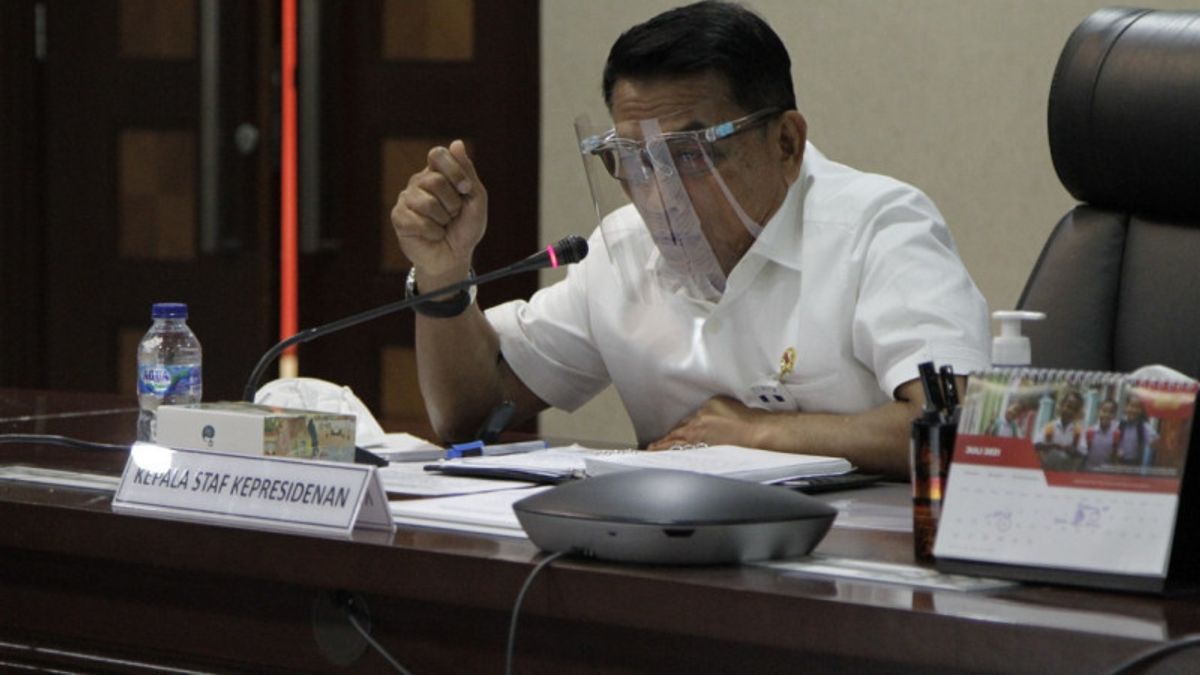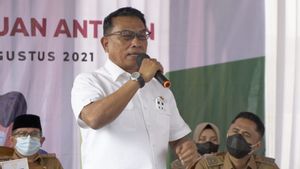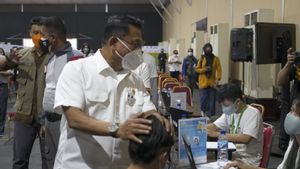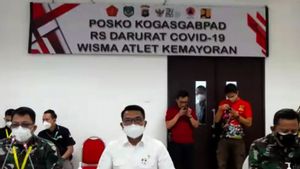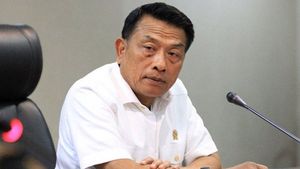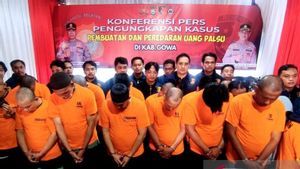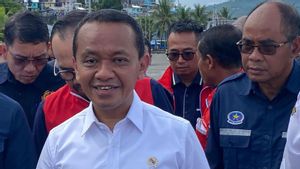JAKARTA - The Presidential Staff Office (KSP) encourages and oversees the acceleration of the vaccination program for Indonesian migrant workers (PMI) both those who will depart for the destination country and those who will return to the country.
Presidential Chief of Staff Moeldoko emphasized the importance of coordination between ministries and institutions regarding vaccination for Indonesian migrant workers.
"I reiterate the need for coordination between all ministries and institutions related to the implementation of governance and budgeting for the provision of vaccinations for prospective PMI and PMI returning home," said Moeldoko in a coordination meeting with the Head of the Indonesian Migrant Workers Protection Agency (BP2MI), at the Bina Graha Building, Jakarta, as KSP press release was reported by Antara, Friday, August 13.
Moeldoko conveyed that the implementation of vaccination was inseparable from the achievement of the PMI placement and protection targets in the RPJMN. The expansion of this placement, according to him, has different challenges in each country, in each type of work, and is dynamic over time.
On that occasion, the Director-General of Protocol and Consular Affairs at the Ministry of Foreign Affairs, Andy Rachmianto, who was also present, stated the need to anticipate the potential return of around 70,000 PMIs from Malaysia by the end of the year.
Moeldoko also asked that this matter to the attention of a number of ministries/institutions involved.
"We must be able to confirm whether they have received the vaccine or not," said Moeldoko.
SEE ALSO:
Based on data from BP2MI, every year during the pre-pandemic period, Indonesia dispatched more than 200,000 PMIs. Since last year, this number has decreased, where in 2020, around 113,000 PMI departed, and from 2021 to June only 36,000 PMI departed.
As for the return, from January 2021 to May 2021, around 86,000 PMIs have returned to Indonesia. Meanwhile, PMI whose contracts have expired from June-July are around 39,000 people and will return to the country.
In addition to the official PMI, the Government faces the return of PMIs that occur non-procedurally. This non-procedural return rate is predicted to be higher than PMI's return through official channels.
“Most of them were deported because they were illegal, overstayed, involved in violating the law, or were sick. If this PMI return is not coordinated properly, it has the potential to create more new problems in controlling the spread of COVID-19 in Indonesia," said Moeldoko.
BP2MI has coordinated with the Ministry of Health and the Regional Health Office for the implementation of vaccinations and PCR tests for prospective PMI who will depart. In addition, the Ministry of Foreign Affairs, the COVID Task Force, BP2MI, and local governments have carried out health procedures for Indonesian citizens returning to the country, including PMI.
However, the large number of Indonesian citizens returning through the debarkation point creates problems regarding the availability of health facilities, especially in areas such as Batam (Riau Islands), Entikong (West Kalimantan), and Nunukan (North Kalimantan). These areas have limitations in the provision of tests, vaccinations, quarantines, and treatments, as well as health workers, facilities, and budget limitations, when compared to the number of PMIs passing through.
Moeldoko also received reports about the lack of coordination between the Health Office in several regions and the Ministry of Health in carrying out the implementation of vaccines in the regions.
One example is that several regional health offices are not willing to provide vaccines for PMI candidates who do not have an ID card with a local domicile address.
The Ministry of Health has tried to solve this problem by implementing vaccinations by the Ministry of Health's UPT in the regions. For this reason, Moeldoko instructed the Ministry of Health to immediately make a letter to BP2MI, containing the procedures for administering vaccines to PMI candidates, so that it can then be used as the basis for making circulars to BP2MI UPTs in the regions.
Moeldoko also emphasized that vaccination planning should be strengthened in its implementation by taking into account the conditions of each region, the point of departure, the point of return, and the policies of the country of placement.
The English, Chinese, Japanese, Arabic, and French versions are automatically generated by the AI. So there may still be inaccuracies in translating, please always see Indonesian as our main language. (system supported by DigitalSiber.id)
